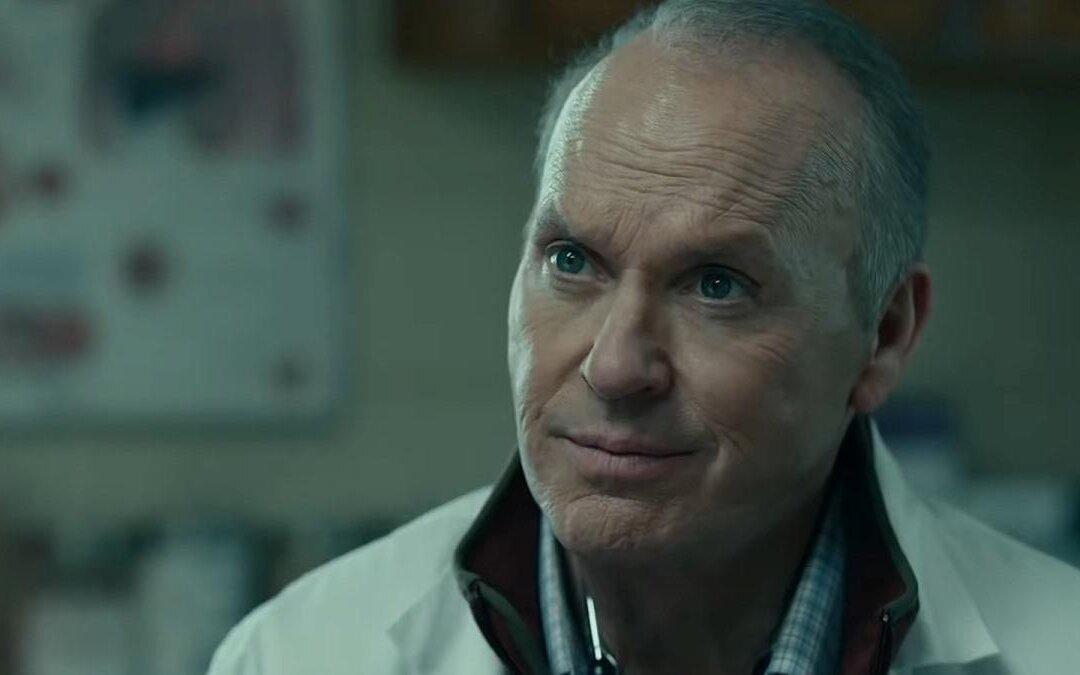“Black ops agent” or “wet boy” is internal CIA lingo for assassin. There have been loads of cold-blooded assassin movies—a random Google search immediately turned up: “Top 150 Assassin/Hitman Films & Shows - IMDb.” Not to mention the popular video game “Assassins” and others of its ilk.
However, movies about “morally reformed” assassins have been on the rise for some time now. The quotation marks indicate a relative concept; we’re not talking about priests here.There’s an overwhelming fascination with human killing-machines—that sheer destructive force. After all, what is the hugely popular “Terminator” but a time-traveling, mechanized assassin? When Arnold said “I'll be baaack” in 1984, he wasn’t kidding. Nobody expected him to be back, 31 years later, in IMAX and 3D.
However, it’s the current societal preoccupation with another community that also specializes in termination—special forces military operators—that has upgraded the cold-blooded assassin to the “morally reformed” assassin story.
Warrior-Spy-Assassin
Former Army Rangers, Green Berets, Delta Force operators, Navy SEALs, Air Force combat controllers, and Marine Raiders, once done with the military, often start a second career with the CIA’s paramilitary asset, the Special Activities Division Ground Branch, which hires the best of the best of military special forces operators.Some former operators also go beyond door-kicking, flash-bang grenades, room-clearing, and snatch-and-grabs into the stealthier black ops community. They don’t have to go far to transpose their hard-won military skills of terminating human life—especially skills involving stealth, intel gathering, hand-to-hand combat, and sniping—to become spies and assassins.
To quote former U.S. Navy SEAL Brandon Webb, who more or less single-handedly revamped the entire SEAL sniper course, and who describes his fellow friends and teammates in his latest book thusly: “All three of them had such kind, generous natures. ‘Sensitive’ may not be a word you expect in a description of the nation’s deadliest war fighters. But there it is.”

The Warrior Quadrant
So, what’s the attraction to the concept of an incredibly lethal man? It has to do with the fact that the spec ops and black ops professions showcase the most concentrated, distilled essence of the warrior archetype, and modern men (and women) thirst for knowledge of the true warrior ethos.What constitutes a warrior? Warrior is boundary setter, enforcer against trespassers. Sentinel, protector, shield. Destroyer of fears and attacks. Warrior embodies courage, aggressiveness, decisiveness, discipline, integrity, accountability, purpose, mindfulness, adaptability, skill, loyalty, and service.
The Boyhood-to-Manhood Rite of Passage
American men up until recently had largely lost access to the birthright of all males, namely, the classic boyhood-to-manhood rite of passage that’s existed in healthy communities, tribal and otherwise, the world over since the dawn of humans.Women in the 1960s and ‘70s, completely fed up with the uptight, pedantic, patriarchal, emotionally illiterate, “mansplaining,” hat-wearing, briefcase-toting, mildly misogynistic, 1950s-style male, successfully convinced men that a sensitive man was more sexually attractive to women.
This desire of women to have a more balanced partner was warranted—that ‘50s guy, such as he was, was in need of an upgrade. He needed a detox. It’s just that no one could elucidate exactly where he got off track. But men responded by subconsciously halting their archetypal mature-male psychic growth cycle. The wisdom and understanding of the process and its profound necessity in a healthy society had long gone missing.
This worked, for a time, as a counterbalance. Women became more masculine; men became more feminine. However, women soon and rightfully became disgusted with the resultant, living-in-mommy’s-basement, slacker man-child, who couldn’t and wouldn’t pick up the check, didn’t know the meaning of the word chivalrous, and cried way too much.
It must also be mentioned here that modern feminism originates in the communist agenda to destroy tradition, by sowing jealousy and insisting that all women are eternally oppressed by men—but that’s a topic for another piece.
It’s safe to say that women, especially with nesting and children in mind, look for well-developed warrior qualities in men. They'd prefer a man with whom they could walk down a dark alley in a dangerous neighborhood and feel supremely safe. Of course, some women prefer to get a black belt in Krav Maga and/or Brazilian jiu-jitsu and feel that way with or without a man.
How They’re Morally Reformed
What’s so intriguing about “The Bourne Identity” is the fact that the character of Jason Bourne has powerful amnesia. He can’t remember who he was, but he discovers that he has a jaw-droppingly impressive set of lethal skills and has no idea where he learned them. When he discovers that he was previously an assassin, his true self is mortified.
In addition to Matt Damon in “The Bourne Identity” (CIA black ops), there is also Liam Neeson in “Taken” (ex-CIA black ops) and Denzel Washington in “The Equalizer” (ex-CIA black ops).

Also, there’s Washington’s “Man on Fire” (ex-assassin), Keanu Reeves in “John Wick” (ex-hitman), and Viggo Mortensen in “A History of Violence” (ex-Irish mob hitman).
Their characters are all formerly (and currently) unstoppable, deadly men who can impose their wills on highly dangerous situations. You mess with them, you get dead quick.

But these men have undergone inner transformations. Mortensen’s Tom Stall spent a long time drifting in the desert, finding his moral compass. Jason Bourne contacts his true self due to the trauma of being shot and floating in the ocean a long while before being fished out by a French trawler, and his ensuing coma overriding the memory of his lethal self.
While we don’t learn much about the inner transformations of Denzel Washington’s Robert McCall or Liam Neeson’s Bryan Mills, we see the results: McCall safeguards a young, vulnerable prostitute, while Mills rescues his trafficked daughter.






Friends Read Free